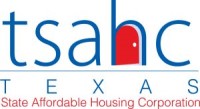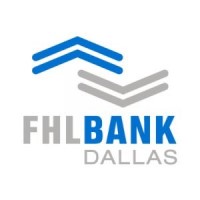Homeownership Hub

Happy State Bank, a division of Centennial Bank Mortgage is committed to assisting our communities by providing essential homebuyer education and financial literacy resources. Let our Homeownership Hub help prepare you for the homebuying process.
Mortgage Terminology

-
Learn More
A credit score predicts how likely you are to pay back a loan on time. Companies use a mathematical formula—called a scoring model—to create your credit score from the information in your credit report. There are different scoring models, so you do not have just one credit score. Your scores depend on your credit history, the type of loan product, and even the day when it was calculated.
-
Your debt-to-income ratio is all your monthly debt payments divided by your gross monthly income. This number is one way lenders measure your ability to manage the monthly payments to repay the money you plan to borrow.
-
An interest rate on a mortgage loan is the cost you will pay each year to borrow the money, expressed as a percentage rate. It does not reflect fees or any other charges you may have to pay for the loan.
-
A Loan Estimate is a three-page form that you will receive within 3 business days of receiving your loan application. The form provides you with important information, including the estimated interest rate, monthly payment, and total closing costs for the loan.
-
The loan-to-value (LTV) ratio is a measure comparing the amount of your mortgage with the appraised value of the property. The higher your down payment, the lower your LTV ratio. Mortgage lenders may use the LTV in deciding whether to lend to you and to determine if they will require private mortgage insurance.
-
Learn More
A mortgage is an agreement between you and a lender that allows you to borrow money to purchase or refinance a home and gives the lender the right to take your property if you fail to repay the money you’ve borrowed.
Click below to learn about the common types of Mortgages.
-
The principal is the amount of a mortgage loan that you have to pay back. Your monthly payment includes a portion of that principal. When a payment on the principal is made, the borrower owes less, and will pay less interest based upon a lower loan size.
Loan Application Documents Needed
Here is a list of documents to gather to include with your application.
- Residence history for the last two years
- Employment history for the last two years
- Income information for the last two years
- Year to date pay stub
- W2’s for the last two years
- Tax returns for the last two years
- Deposit, Retirement and Equities account information
- Real Estate information

Mortgage Loan Types
Conventional
A conventional loan is any mortgage loan that is not insured or guaranteed by the government (such as under Federal Housing Administration, Department of Veterans Affairs, or Department of Agriculture loan programs).
Federal Housing Administration (FHA)
FHA loans are loans from private lenders that are regulated and insured by the Federal Housing Administration (FHA). Maximum loan amounts vary by county.
USDA Rural Development (RD)
The Rural Housing Service, part of the U.S. Department of Agriculture (USDA) offers mortgage programs with no down payment and generally favorable interest rates to rural homebuyers who meet the USDA’s income and property eligibility requirements.
Veterans Affairs (VA)
A VA loan is a loan program offered by the Department of Veterans Affairs (VA) to help service members, veterans, and eligible surviving spouses buy homes. The VA does not make the loans but sets the rules for who may qualify and the mortgage terms. The VA guarantees a portion of the loan to reduce the risk of loss to the lender. The loans generally are only available for a primary residence.
Jumbo
Features loan sizes above the standard conventional loan limit with Fixed Rate and Adjustable Rate options available.
Portfolio Loan Programs
Portfolio- 3/1, 5/1, or 7/1 Adjustable Rate Mortgage (ARM)
Physicians- 3/1, 5/1, 7/1 Adjustable Rate Mortgage (ARM)
Foreign National- 3/1, or 5/1 Adjustable Rate Mortgage (ARM)
Land Loan- 5/1 Adjustable Rate Mortgage (ARM)
Dream Loan- 30 year Fixed Rate
Second Mortgage Jumbo Buster- 7/1 Adjustable Rate Mortgage (ARM)
Construction to Permanent Loan Programs
Secondary (Conventional and Jumbo)- 5/1 Adjustable Rate Mortgage (ARM) with the opportunity to modify to Fixed Rate upon completion
Portfolio- 3/1, 5/1, 7/1 Adjustable Rate Mortgage (ARM)
Professional- 3/1, 5/1, 7/1 Adjustable Rate Mortgage (ARM)
Foreign National- 3/1, 5/1 Adjustable Rate Mortgage (ARM)
Down Payment Assistance - Fixed Rate
Alabama Housing Finance Authority (AHFA)
Arkansas Development Finance Authority (ADFA)
Florida Housing Finance Corporation (FHFC)
Texas State Affordable Housing Corporation (TSAHC)
Federal Home Loan Bank Dallas (HELP)
Types of Interest Rates
Fixed Rate Mortgage
The traditional fixed-rate mortgage has a constant interest rate and monthly payments that never change. This may be a good choice if you plan to stay in your home for seven years or longer. If you plan to move within seven years, then adjustable-rate loans are usually cheaper. As a rule of thumb, it may be harder to qualify for fixed-rate loans than for adjustable rate loans. When interest rates are low, fixed-rate loans are generally not that much more expensive than adjustable-rate mortgages and may be a better deal in the long run, because you can lock in the rate for the life of your loan.
Adjustable Rate Mortgage (ARM)
Ask a Happy State Bank, a division of Centennial Bank, Mortgage Loan Originator for ARM details. Hybrid ARMS have become increasingly popular and can offer the best of both worlds: lower potential interest rates (like ARMs) and a fixed payment for a longer period of time than most adjustable rate loans. It’s a good choice for people who expect to move (or refinance) before or shortly after the adjustment occurs.
Additional Costs
Closing Costs
Mortgage closing costs are all of the costs you will pay at closing. This includes origination charges, appraisal fees, credit report costs, title insurance fees, and any other fees required by your lender or paid as part of a real estate mortgage transaction. Lenders are required to provide a summary of these costs to you in the Loan Estimate.
Down Payment
A down payment is the amount you pay toward the home upfront. You put a percentage of the home’s value down and borrow the rest through your mortgage loan. Generally, the larger the down payment you make, the lower the interest rate you will receive and the more likely you are to be approved for a loan.
Home Inspection
A home inspection is often part of the home buying process. You typically have the right to hire a home inspector to examine a property and point out its strengths and weaknesses. This is often especially helpful to test a home’s structural and mechanical systems including heating, ventilation, air conditioning, and electrical.
Homeowner’s Insurance
Homeowner’s insurance pays for losses and damage to your property if something unexpected happens, like a fire or burglary. When you have a mortgage, your lender wants to make sure your property is protected by insurance. That’s why lenders generally require proof that you have homeowner’s insurance. Homeowner’s insurance is not the same as mortgage insurance.
Origination Fee
An origination fee is what the lender charges the borrower for making the mortgage loan. The origination fee may include processing the application, underwriting and funding the loan, and other administrative services. Origination fees generally can only increase under certain circumstances.
Property Taxes
Property taxes are taxes charged by local jurisdictions, typically at the county level, based upon the value of the property being taxed. Often, property taxes are collected within the homeowner’s monthly mortgage payment, and then paid to the relevant jurisdiction one or more times each year. This is called an escrow account. If the loan does not have an escrow account, then the homeowner will pay the property taxes directly.
GreenPath Financial Wellness
GreenPath is a trusted national nonprofit with more than 60-years of helping people build financial health and resiliency. GreenPaths NFCC-certified counselors give you options to manage credit card debt, student loans and homeownership. Centennial Bank and GreenPath have partnered to provide customers with free financial education and counseling services. Click below to visit our Partner Portal.








